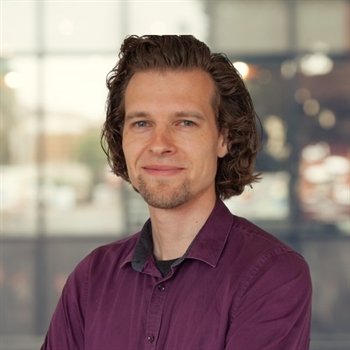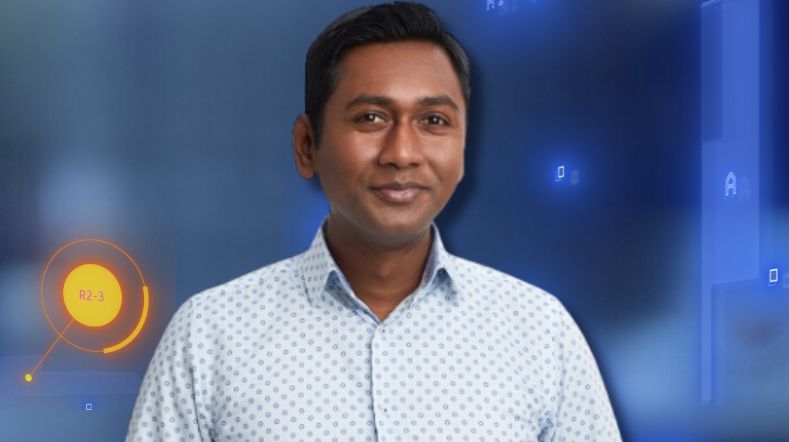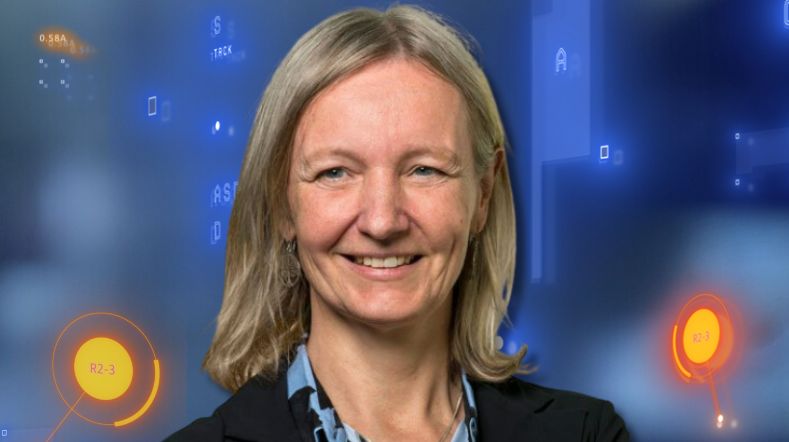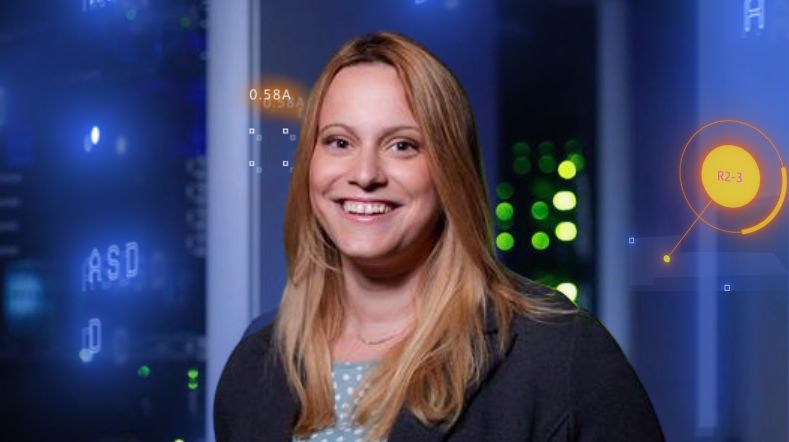AI in training: FATE develops digital doctor's assistant
The predictive power of AI can be of great value to health care, for example to detect diseases early or even prevent them. But how do you harness that power responsibly and reliably? That is the main focus of FATE, a TNO Appl.AI project to train the digital doctor’s assistant of the future.
Development of human-centered AI
Jildau Bouwman is Senior Scientist at TNO and an expert in systems biology, lifestyle medicine, and digital health interventions. She believes that the time is ripe for AI applications in health care. "The system is bursting at the seams due to the ageing population and staff shortages. Technology is really ready to address this. However, convincing people of that fact remains an uphill struggle, because many have cold feet when it comes to AI."

"With FATE, we can show what AI is capable of, but also how to deploy the technology in an effective, safe, and controllable way."
TNO colleague Tjeerd Schoonderwoerd, Project Lead Responsible AI, agrees. "With FATE, we can show what AI is capable of, but also how to deploy the technology in an effective, safe, and controllable way.
The aim of our project is to combine the power of AI with the power of human knowledge and expertise. We keep asking ourselves the question: what could a collaboration between doctor and digital assistant look like? What is possible? What do we need?"
Digital assistant development challenge
First and foremost, training a digital doctor's assistant requires data, says Bouwman. "Data are abundant, but until recently, the data collected by healthcare providers could hardly be shared without harming the privacy of individuals.
Technically, sharing safely is now possible - with privacy enhancing technologies for example - but healthcare providers are sometimes still reluctant to make their data available. Other challenges include combining data stored in different ways and recognising any biases that end up in models. This is also being worked on in FATE."
Perhaps the greatest challenge for the digital assistant is understanding the broader context of patients, says Schoonderwoerd. "If you give an AI input with data alone, it will churn out the weirdest advice. For example, a human understands that you cannot advise someone in a wheelchair to go running more, but a computer has to learn that.
Another example: in our case study into type 2 diabetes, the AI learned that women are more susceptible to this disease than men, but we also had to make it clear that this does not mean you can advise a female patient to turn into a man."
Bouwman concludes: "In principle, it is better to leave logical reasoning to a computer rather than to a human being, but it has to learn that logic first. That's quite a challenge. As a systems biologist, I see that this requires incorporating the knowledge we have about the human body into an AI system."
Case study: personalised diabetes interventions
Ayla is a Turkish-Dutch woman aged almost 60. Thirty years ago, she migrated to the Netherlands with her husband and daughter. At the doctor's surgery, she was diagnosed with a high risk of developing type 2 diabetes. To avoid that, she should be given advice that fits her background, so she’s more likely to follow it. FATE's case study* outlines how the digital doctor's assistant can help Ayla and her doctor do just that.
*NB: Designed for laptops or tablets, but not for mobile phones.
Insight into considerations of the digital doctor's assistant
Bouwman believes that, in addition to concerns about privacy, bias, and impossible advice, there is another major reason for the trepidation regarding AI. "When we present our algorithms to doctors, we find that they’re not particularly interested in the analysis given by the computer, but rather in the way it’s arrived at.
Understanding the considerations made by an AI is paramount for them, as they are and remain ultimately responsible for the decisions made."
"Transparency and the explainability of outcomes are thus essential components of FATE," Schoonderwoerd adds. "A digital doctor’s assistant must be able to explain at all times what a recommendation or analysis is based on. Not only to a medical specialist, but also to patients themselves.
Step by step and being honest about any uncertainties. In comprehensible language, tailored to the individual. If you do all of that well, it will result in greater trust, more accessible care, and greater patient autonomy."
Inclusive care with the help of AI
"Within FATE, we have the opportunity to work on all the challenges we mention here at the same time," says Bouwman. "Actually, we’re designing a complete training course for the digital doctor’s assistant of the future. Once that has been completed, healthcare professionals and patients will have unparalleled decision support.
After all, even though a computer has to learn all sorts of things, an AI with access to large amounts of qualitative data will overlook less than even the best doctors. This does not mean that mistakes will never be made again, but details or cross-references can be spotted significantly faster and more easily."
Especially people who are currently underrepresented in research populations, such as women and migrants, will benefit from AI's unprecedented attentiveness, Bouwman believes.
"That’s exactly why we focused on type 2 diabetes in the first major case study. This disease mostly affects women, but medical science has long focused only on white men. We have much less knowledge about women, and even less knowledge about women of colour. In our case study, Ayla, a Turkish woman of almost 60, therefore plays the lead role. Women like her need very specific advice from their doctor.
To enable better advice, AI models need to be explicitly fine-tuned, and more specific data need to be collected. That means care is becoming more inclusive. Better for everyone."
Do you want to know more about the possibilities of data sharing in healthcare?
Get inspired
Digitalisation and sustainability: how AI can help


Time setter story: Kallol Das


Digital Product Passport


Time setter story: Annemieke Kips


Time setter story: Belma Turkovic






